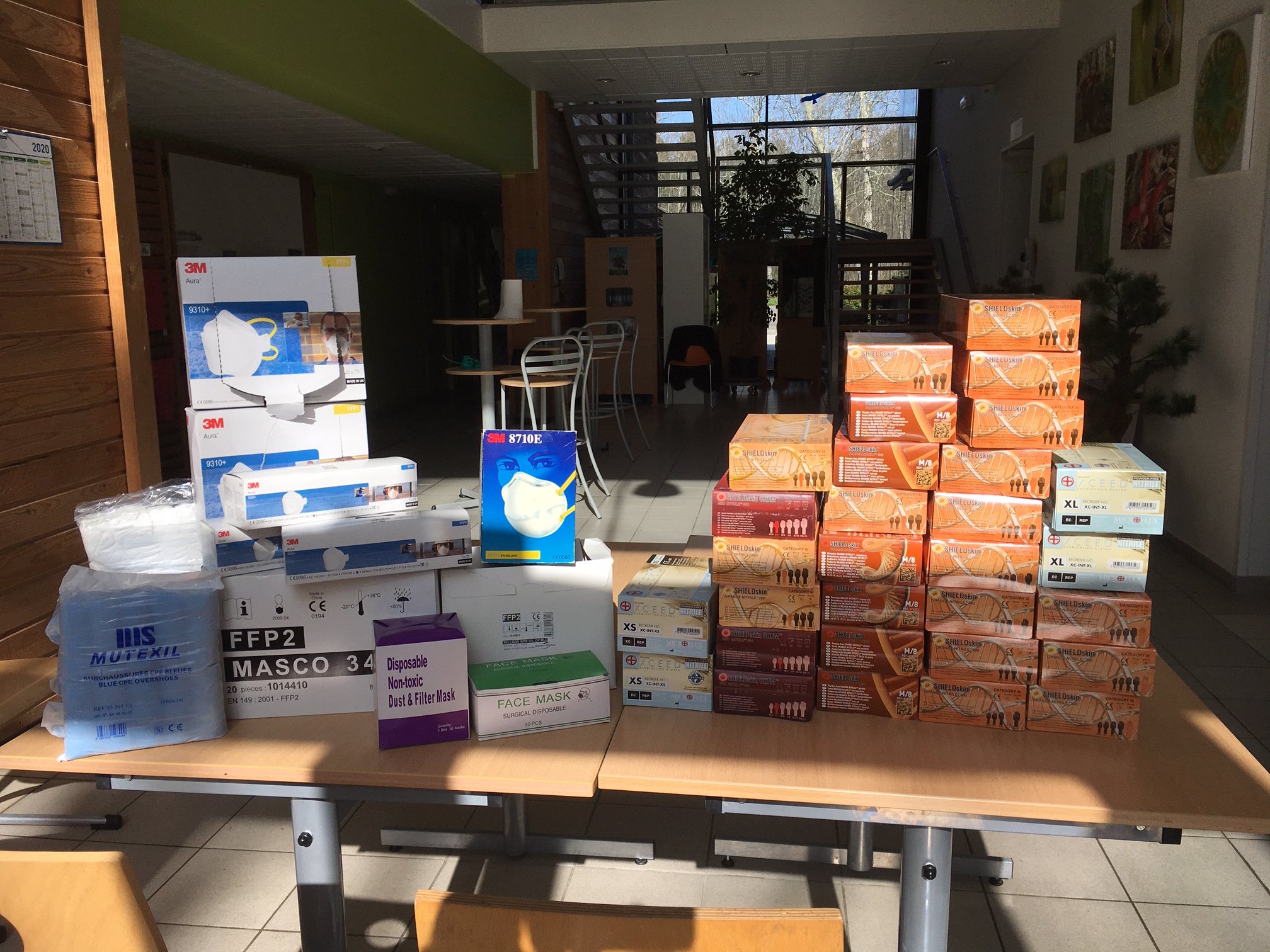Reading time 3 min
COVID-19: INRAE supports clinical research and hospitals
Published on 23 March 2020


- 71,141 masks including 26378 FFP2 or FFP3 masks
- 1,130 head covers
- 142,000 pairs of gloves
- 4,834 disposable gowns and overalls
- 142 pairs of glasses
- 19,700 shoe covers
- 2,303 litres of hydroalcoholic solution or equivalent
Extract of Philippe Mauguin’s message to the Presidents of INRAE centres, Division Heads and Unit Directors on Friday 20 March:
"Many of you are contacting us to offer the human and material resources of your laboratories and units in order to help prevent, detect and treat in the present crisis. These are generous offers and we would like to thank you, and our colleagues who have volunteered, very warmly.
For obvious reasons of efficiency, we must make a list of these offers so that they correspond to requests. This procedure has been validated during the daily meeting between the main French research organisations and the Ministry of Higher Education, Research and Innovation (MESRI). The MESRI is in charge of relations with the Ministry for Solidarity and Health which will deal in particular with the sensitive questions related to organizing diagnoses and care.
We draw to your attention that the services which we will offer must not call into question the most important research or clinical trials which we are conducting on COVID-19 or other subjects for which we have decided to continue our activities. They must be conducted under safe conditions and deliver reliable and exploitable results.
If you are concerned by these subjects, we ask you to convey the information below to colleagues in your unit then inform the President of your Centre. The President of your Centre will contact the university hospital or the reference hospital in proximity which will specify its requirements to us.
This procedure will be carried out in close consultation between the CEA, CNRS, INRAE, INRIA and INSERM who are sending out a similar message to their units and regional delegates. We will also inform our university partners of this initiative. If your laboratory depends on several institutes, you should relay the information to one of them, and notify the others.
Procedure in the research units:
On the proposal of the head of laboratory/unit, an inventory of the following is made:
- The stocks of protective masks, gloves and glasses, reagents (particularly for PCR), apart from those necessary for the laboratory’s own needs, can be made available to the university hospital or reference hospital in proximity.
- Machines, particularly PCR type machines, available in your lab can be made available to the university hospital or reference hospital in proximity.
- The human resources which can be mobilised in laboratories will be requested in an organised manner, strictly on a volunteer basis, to meet two needs in priority:
1) the continuity of clinical research protocols conducted with the support of Clinical Investigation Centres (the hospital staff of these structures being increasingly required for emergency care)
2) the increase of hospital diagnoses using PCR. A call for expertise will shortly be launched to meet the first needs identified.
The business continuity plans of the unit will be updated to include these activities which were not able to be identified initially.
The Presidents of the Centres will then collect
- The aggregated list of the small equipment and reagents made available to the university hospital or reference hospital in proximity.
- The list of machines made available to the university hospital or reference hospital in proximity”
[#JeVeuxAider] The French government is calling for volunteers to help with emergency & food aid, childcare and help for isolated and/or vulnerable people


